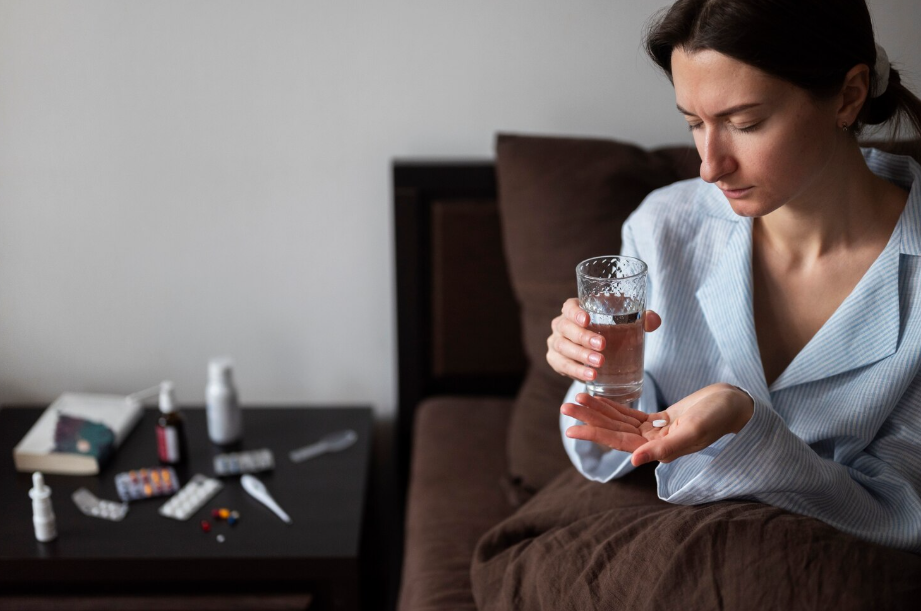
Short-Term Rehabilitation for Addiction
Short-term rehabilitation programs provide individuals struggling with addiction a focused and intensive treatment approach. These programs typically last for about 28 to 30 days, offering a comprehensive range of services to support individuals in their recovery journey [1].
Overview of Short-Term Rehab
Short-term rehabilitation programs, lasting between 28 to 30 days, aim to provide individuals with intensive intervention and support to effectively address addiction. These programs offer a structured environment where individuals can receive the necessary care and treatment to begin their recovery process.
During short-term rehab, individuals can expect a range of services and therapeutic interventions to address their addiction and its underlying causes. The programs generally focus on the following components:
- Detoxification and Stabilization: Short-term rehab programs often include a detoxification phase to help individuals safely and comfortably withdraw from substances. Medical professionals closely monitor the process to ensure the individual's safety and well-being.
- Counseling and Therapy Sessions: Individual and group counseling sessions are integral parts of short-term rehab programs. These sessions provide a supportive environment for individuals to explore the psychological and emotional aspects of their addiction, learn coping strategies, and develop healthier behaviors.
- Education on Addiction and Recovery: Short-term rehab programs also emphasize education about addiction and recovery. Individuals gain a deeper understanding of the nature of addiction, its impact on their lives, and the tools needed for sustainable recovery.
Benefits of Short-Term Rehab
Short-term rehab programs offer several benefits for individuals seeking treatment for addiction. These programs are particularly effective for those in the early stages of addiction who require intensive intervention and support to initiate their recovery journey.
Here are some key benefits of short-term rehab:
- Intensive Treatment: Short-term rehab programs provide individuals with concentrated treatment in a relatively short period. The focused approach allows for a more rapid and intensive intervention to address addiction and its associated challenges.
- Flexibility: Short-term rehab programs are well-suited for individuals who have work or family commitments that prevent them from attending long-term rehab. The shorter duration offers a more flexible treatment option without compromising on the quality of care.
- Stepping Stone to Long-Term Recovery: Short-term rehab can serve as a stepping stone for individuals who have already completed a long-term rehab program. It offers additional support and maintenance of their recovery progress, reinforcing the skills learned during long-term treatment.
- Tools for Sustained Sobriety: Despite the shorter duration, individuals in short-term rehab programs acquire valuable tools to manage their addiction, learn coping strategies, and develop a sustainable recovery plan. These skills and strategies can be applied to maintain long-term sobriety.
Follow-up care and participation in aftercare programs post short-term rehabilitation significantly improve the chances of maintaining long-term sobriety and preventing relapse. Short-term rehab programs are designed to equip individuals with the necessary tools for lasting recovery, even after completion of the program.
Components of Short-Term Rehab Programs
Short-term rehabilitation programs play a crucial role in helping individuals overcome addiction and begin their journey towards recovery. These programs are designed to provide intensive treatment and support within a relatively short duration. In this section, we will explore two key components of short-term rehab programs: the duration and intensity of treatment, and the therapeutic approaches used.
Duration and Intensity of Treatment
Short-term rehab programs typically last for about 28 to 30 days, providing individuals with a concentrated period of intensive treatment and support. These programs are particularly effective for individuals in the early stages of addiction who require intensive intervention and support to initiate their recovery journey [1].
The duration of short-term rehab programs allows individuals to focus on their recovery in a structured and supportive environment. During this time, they receive comprehensive care and engage in various therapeutic activities aimed at addressing addiction and its underlying causes.
The intensive nature of short-term rehab ensures that individuals receive concentrated support and guidance throughout their treatment. This intensity often includes daily counseling sessions, group therapy, educational workshops, and other evidence-based interventions. The goal is to provide individuals with the tools and strategies necessary to address their addiction and develop healthier coping mechanisms.
Therapeutic Approaches in Short-Term Rehab
Short-term rehab programs employ various therapeutic approaches to address addiction and promote recovery. These approaches are tailored to the unique needs and circumstances of each individual. Some common therapeutic modalities include:
- Cognitive-Behavioral Therapy (CBT): CBT helps individuals identify and change negative thought patterns and behaviors associated with addiction. It aims to develop healthier coping skills and strategies to manage cravings and triggers.
- Motivational Interviewing: This approach helps individuals explore their motivations for change and build internal motivation to overcome addiction. It focuses on enhancing individuals' readiness to make positive changes in their lives.
- Group Therapy: Group therapy provides individuals with a supportive and non-judgmental environment to share their experiences, receive feedback, and learn from others who are facing similar challenges. It promotes a sense of community and helps individuals feel understood and supported.
- Psychoeducation: Short-term rehab programs often include educational sessions about addiction, its effects on the body and mind, and the process of recovery. Psychoeducation helps individuals gain a better understanding of addiction and equips them with the knowledge needed to make informed decisions about their recovery journey.
- Holistic Therapies: Some short-term rehab programs incorporate holistic therapies such as yoga, meditation, art therapy, and mindfulness practices. These therapies complement traditional approaches by promoting emotional well-being, stress reduction, and self-awareness.
By combining these therapeutic approaches, short-term rehab programs aim to provide individuals with a comprehensive and holistic treatment experience. The goal is to address addiction from multiple angles, helping individuals develop the necessary skills and support networks to maintain long-term sobriety.
What to Expect in Short-Term Rehab
Short-term rehabilitation programs for addiction typically encompass a range of components designed to provide individuals with the necessary tools and support for recovery. Understanding what to expect during short-term rehab can help individuals make informed decisions about seeking treatment.
Detoxification and Stabilization
Detoxification is often the first step in short-term rehab programs. This process involves the removal of drugs or alcohol from the body under supervised medical care. During detoxification, individuals may experience withdrawal symptoms, which can be managed through medication and support from healthcare professionals.
The goal of detoxification is to rid the body of substances and stabilize individuals physically and mentally. This prepares them for the therapeutic aspects of the rehab program.
Counseling and Therapy Sessions
Counseling and therapy play a crucial role in short-term rehab programs. Various therapeutic approaches are employed to address the underlying causes of addiction and develop coping mechanisms for sustained recovery. Behavioral therapies such as Cognitive Behavioral Therapy (CBT) and Dialectical Behavioral Therapy (DBT) are commonly used to help individuals modify destructive behaviors, manage cravings, and develop healthier coping strategies.
Individual counseling sessions provide a safe and confidential space for individuals to explore their thoughts, emotions, and experiences related to addiction. Group therapy sessions offer peer support and the opportunity for individuals to share their stories, learn from others, and foster a sense of community.
Family therapy may also be incorporated into short-term rehab programs. These sessions involve the participation of family members to address the impact of addiction on relationships, promote understanding, and rebuild a supportive network.
Education on Addiction and Recovery
In short-term rehab, individuals receive education on addiction and recovery to enhance their understanding of the disease and its effects. Educational sessions provide information about the physiological and psychological aspects of addiction, the impact on personal and social well-being, and strategies for relapse prevention.
By learning about addiction, individuals gain insight into the factors contributing to their substance use and develop strategies to avoid triggers and maintain long-term sobriety. Education also helps individuals build confidence in their ability to navigate the challenges of recovery and make informed decisions regarding their health and well-being.
Understanding what to expect during short-term rehab can help individuals prepare for the journey ahead. Through detoxification and stabilization, counseling and therapy sessions, and education on addiction and recovery, short-term rehab programs provide a comprehensive approach to addressing addiction and building a foundation for long-term sobriety.
The Importance of Aftercare in Short-Term Rehab
After completing a short-term rehabilitation program for addiction, the journey towards sustained recovery continues. The importance of aftercare cannot be overstated, as it plays a pivotal role in transitioning individuals from the structured environment of rehab back into their daily lives. This section will explore the significance of aftercare programs in short-term rehab and the maintenance of long-term sobriety.
Transitioning to Aftercare Programs
Transitioning from a short-term rehab program to aftercare is a critical step in the recovery process. Aftercare programs provide ongoing support and guidance to individuals as they reintegrate into their communities. These programs are tailored to meet the specific needs of each person, ensuring continued progress and minimizing the risk of relapse.
Aftercare programs may include:
- Outpatient Therapy: Regular therapy sessions with a counselor or therapist to address underlying issues, develop coping strategies, and provide ongoing support.
- Support Groups: Participation in support groups, such as Alcoholics Anonymous (AA) or Narcotics Anonymous (NA), which offer a sense of community, encouragement, and shared experiences.
- Continued Education: Educational programs that focus on addiction and recovery, providing individuals with tools and knowledge to navigate challenges and maintain sobriety.
- Sober Living Houses: Transitional housing options that provide a supportive and substance-free environment for individuals who may require additional structure and accountability.
By engaging in aftercare programs, individuals have the opportunity to reinforce the skills and strategies they learned during short-term rehab. Continued support and accountability help individuals navigate potential triggers and challenges they may encounter in their daily lives.
Maintaining Long-Term Sobriety
The goal of aftercare is to support individuals in maintaining long-term sobriety. Engaging in aftercare significantly improves the chances of sustained recovery and reduces the risk of relapse. After completing a short-term rehab program, it's crucial to continue working on personal growth and implementing the tools acquired during treatment.
Aftercare programs offer ongoing therapy, counseling, and support groups that foster a sense of community. These resources provide individuals with a safe space to discuss challenges, receive guidance, and celebrate milestones. The support and accountability provided by aftercare programs play a crucial role in preventing relapse and promoting long-term sobriety.
To maintain long-term sobriety, it's important for individuals to actively participate in their aftercare programs and embrace the recovery community. This may involve attending therapy sessions regularly, actively engaging in support groups, and establishing a strong support network of friends and family who understand and support their journey.
By committing to aftercare, individuals can continue to develop effective coping mechanisms, relapse prevention strategies, and the necessary tools to maintain sobriety, even after completing a short-term rehab program [3]. Aftercare serves as an ongoing source of support and guidance, helping individuals navigate the challenges of daily life while staying on the path of recovery.
Continued care and participation in aftercare programs are essential for individuals who seek to maintain their recovery and prevent relapse. The commitment to ongoing support and treatment significantly increases the likelihood of long-term sobriety, offering individuals the opportunity to lead fulfilling and substance-free lives.
Is Short-Term Rehab Right for You?
When considering addiction treatment options, it's important to determine whether short-term rehab is the right choice for you. Short-term rehab programs may be suitable for individuals with less severe addiction issues or as a first step towards a longer treatment plan for more complex cases. Let's explore the suitability of short-term rehab for different addiction levels and considerations for treatment planning.
Suitability for Different Addiction Levels
Short-term rehab programs generally focus on intensive therapy, counseling, support group participation, and education on addiction and recovery. These programs may be most effective for individuals with mild to moderate addiction issues. The structured environment and concentrated treatment provided by short-term rehab can be a starting point for individuals in the early stages of their recovery journey.
For individuals with severe addiction issues or those who have struggled with sustained recovery in the past, longer treatment options, such as residential or outpatient programs, may be more appropriate. These extended programs provide comprehensive care and additional support to address the complex needs of individuals with more advanced addiction levels.
Considerations for Treatment Planning
When considering short-term rehab, there are several factors to take into account for effective treatment planning. These factors include:
- Individual Assessment: It is crucial to undergo a thorough assessment by qualified professionals to determine the most suitable level of care for your specific addiction needs. This assessment may consider the severity of addiction, mental health conditions, physical health, and any other co-occurring disorders.
- Therapeutic Approaches: Short-term rehab facilities may offer various types of therapy, including individual therapy, group therapy, family therapy, and specialized therapies such as cognitive-behavioral therapy (CBT) and dialectical behavior therapy (DBT). The selection of therapeutic approaches should align with your unique needs and address the underlying issues contributing to your addiction.
- Aftercare Planning: While short-term rehabilitation programs provide a structured environment for recovery, they are often just the beginning of a longer treatment process. It is crucial for individuals completing short-term rehab to continue with aftercare and long-term support to maintain their recovery progress. Aftercare planning, which may involve transitioning to outpatient programs, support groups, or therapy sessions, plays a vital role in sustaining long-term sobriety.
By carefully considering the level of your addiction and the various aspects of treatment planning, you can make an informed decision about whether short-term rehab is the right choice for your recovery journey. Remember, seeking guidance from addiction professionals is essential to determine the most appropriate treatment option tailored to your specific needs.
Success and Effectiveness of Short-Term Rehab
When considering short-term rehabilitation programs for addiction, it's important to understand the factors that can influence the success rates and the importance of continuation of care for sustained recovery.
Factors Influencing Success Rates
The success of short-term rehab programs can vary depending on several factors, including the individual's commitment to recovery, the severity of their addiction, and their willingness to actively participate in the treatment process. According to the NCBI Bookshelf, individuals who remain in treatment for longer periods of time are more likely to achieve maximum benefits. Additionally, those with lower levels of premorbid psychopathology and other serious social, vocational, and legal problems are most likely to benefit from treatment.
It's essential to recognize that addiction treatment success is comparable to the treatment of other chronic medical conditions such as hypertension, asthma, and diabetes. Both addiction and these chronic conditions require behavioral change and medication compliance for successful treatment, as stated by the NCBI Bookshelf. With the right support and a comprehensive treatment plan, individuals can overcome addiction and achieve long-term recovery.
Continuation of Care for Sustained Recovery
While short-term rehabilitation programs provide a structured environment for recovery, they are often just the beginning of a longer treatment process. It is crucial for individuals completing short-term rehab to continue with aftercare and long-term support to maintain their recovery progress.
Aftercare programs, such as outpatient counseling, support groups, and sober living arrangements, play a vital role in the transition from short-term rehab to independent living. These programs provide ongoing guidance, accountability, and support as individuals navigate the challenges of day-to-day life while maintaining sobriety.
Continued therapy and counseling are particularly valuable during the early stages of recovery when individuals may face triggers, cravings, and emotional challenges. By participating in aftercare programs, individuals can build upon the foundation established during short-term rehab and further develop coping skills, relapse prevention strategies, and healthy support networks.
To achieve sustained recovery, it is crucial for individuals to actively engage in their aftercare plan and embrace the resources and support available to them. By staying connected to a recovery community and continuing to prioritize their well-being, individuals can increase their chances of maintaining long-term sobriety.
Short-term rehab programs provide a valuable starting point for individuals seeking to overcome addiction. While success rates can vary, the commitment to continued care and support significantly influences the long-term outcomes of individuals in recovery. By recognizing the importance of aftercare and actively participating in ongoing treatment, individuals can break free from addiction and achieve a healthier, more fulfilling life.
References
[1]: https://americanaddictioncenters.org/rehab-guide/how-long-rehab-last
[2]: https://eudaimoniahomes.com/10-therapies-used-in-addiction-treatment/
[3]: https://americanaddictioncenters.org/rehab-guide/short-term-rehab
[4]: https://boardwalkrecoverycenter.com/types-of-therapy-in-addiction-treatment/
[5]: https://www.addictioncenter.com/rehab-questions/is-my-addiction-bad-enough/



